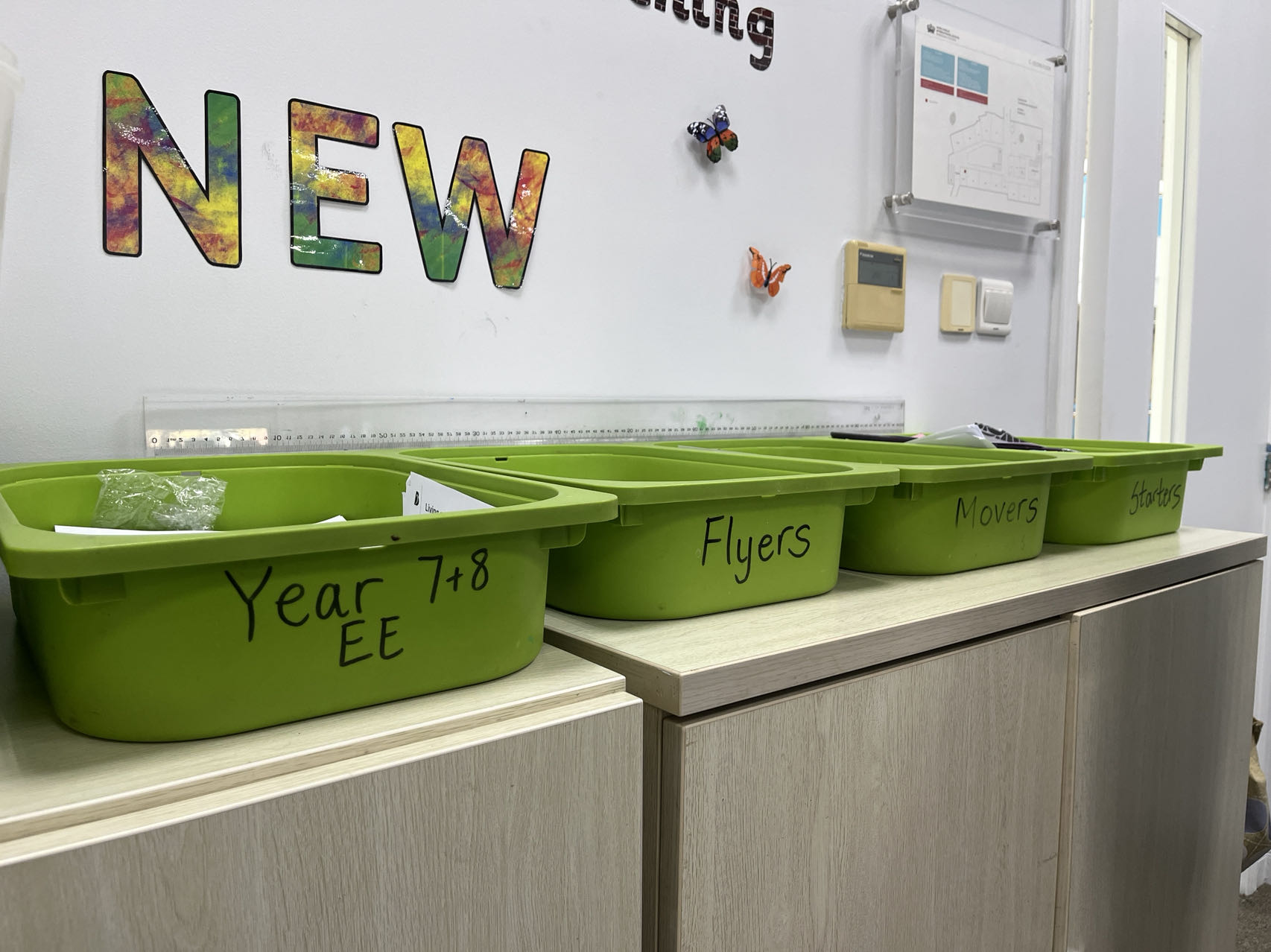English as an Additional Language (EAL) is an essential programme offered in schools across the world. At NAIS Pudong, we present a customised EAL programme that aims to meet the needs of the individual. We believe that a student-centred EAL setup allows for the fastest route to a level of competence in English. A “one-size-fits-all” solution is not effective because the student composition, and therefore the need of the student, changes every year.
There are multiple factors affecting a student’s proficiency and progress in English and every one of these should be taken into consideration in the design and implementation of an EAL programme. NAIS Pudong regards all these factors as important influences on the EAL student and designs the course accordingly. These influences include:
Prior learning in English: It is important to establish whether the student previously learnt academic English or one that involved all of the aspects of the language i.e. listening, speaking, reading and writing fluently. NAIS Pudong’s EAL programme bridges the actual gaps the student has from prior learning and aims not to repeat unnecessary steps or indeed leave out vital knowledge and skills because both these approaches can affect student progress adversely.
Age: The age of the student affects the pace at which he/she learns a new language. The younger the student, the faster the advancement tends to happen on the whole. Younger students are typically more motivated to learn anything new and they also often receive rewards and understand the benefits for their efforts. One such thought is “If my English improves, so do my other subjects.” This is largely not the same for older students because attitudes to learning vary, habits are more difficult to change, workload is greater, and progress slows down. It is never too late to start learning a new language though. It may just take longer and require more effort at a later stage. But if the older learner is motivated and enjoys the learning, progress is a certainty.

Native languages and other additional languages the student may know: Languages differ in numerous ways: they use different sounds; words are constructed in different ways; they place words together to form a sentence in different ways; to name just a few examples. Language structure is a vital component in understanding and effectively using the English language. It refers to the systematic organisation of words, phrases, and sentences, which enables clear and coherent communication. But English differs in construct to a number of other languages. Therefore, depending on the native language, students often have to be re-taught the basics of sentence construction when starting their English learning journey.

Another challenging area of languages is reading. This can be illustrated by comparing Chinese and English; Chinese-speaking students are skilled to read Chinese using visual processing skills, while reading English requires phonological processing skills. Just this fact has an immense impact on a student’s acquisition of English. It is vital that the EAL educator is aware and adapts facilitation accordingly.
The first step a student at MAIS Pudong will take with English is adiagnostic assessment. The diagnostic assessment collects the linguistic and educational information, such as information about learners’ language, prior education, and current cognitive skills. Our diagnostic assessment involves an on-line assessment (Oxford English Placement) which is then followed by written, speaking and grammar tests during the first few weeks of the EAL Programme. Students are placed into groups of similar ability, although competencies will vary within each group.
Primary students fall into Starters, Movers or Flyers on the Cambridge English scale, after which they re-enter mainstream English.
CEFR | General Ability | www.cambridgeenglish.org
Schools Scale |
A2 | BASIC | A2 Flyers (KET) |
|
|
A1 | A1 Movers |
|
|
|
Pre A1 | PRE-BASIC | Pre A1 Starters |
|
|
|

Secondary Learners are grouped according to their year and current English ability in Key Stage 3 (Years 7 to 9). This is agreed in collaboration with language teachers in the school.
The EAL curriculum at NAIS Pudong is designed in such a way that all learners’ needs are met inthe classroom, and any additional related support required is highlighted for further intervention. The EAL Department works closely with all staff members including Special Educational Needs (SEN) and all support staff.
English language development is integrated and embedded into thecurriculum within language-rich mainstream classes and EAL classes. The NAIS Pudong British curriculum provision places a strong emphasis on core skills that are essential for success in the modern world. English and Mathematics form the foundation of study, ensuring students develop strong literacy and numeracy. These core skills are integrated throughout all subject areas, equipping students with the fundamental abilities needed for effective communication, critical thinking, and problem-solving.
EAL at NAIS Pudong is largely based on what is being taught in the classroom. We believe it encourages the necessary confidence in the student to enter mainstream classes quickly to acquire the mainstream level of English. Offering EAL as a completely different subject, a stand-alone EAL Programme, can have the opposite effect. This approach to language support links into our core aim of developing creative, confident and considerate learners who are prepared for their futures beyond education. We motivate students in a few ways, including:
- Learning EAL provides a particular purpose i.e. Assisting with university applications or to travel.
- Showing the positive experiences of English-speaking people from sportsmen and women, actors and singers, to people who have become successful after acquiring the language from NAIS Pudong itself.
- Ensuring that EAL learning is fun, relevant and encourages progress. This tends to be the most effective form of motivation.

NAIS practices both exclusive EAL and immersion. Students are taken out of classes 3-5 times per week for intensive English sessions while also attending mainstream classes. This assists in the learning of social skills, group work, classroom etiquette and the other core/essential subjects. Where there are large groups of children speaking the same language, the progress is always exceptional. In fact, students who are surrounded by an English-speaking environment more than 90% of the time, are significantly more fluent than those who do not.
Formative assessment includes weekly tests, as well as written and verbal exercises. An EAL student will sit a progress assessment in Term 2 and 3 to determine actual progress, and just some examples of this progress in writing can be seen in this document, with several featured students having joined NAIS Pudong with low levels of English.
EAL runs through the bloodstream of every aspect of a NAIS Pudong students education. EAL educators are not only qualified language teachers, but work in collaboration with the Teaching Assistants, the SEN Department, and all other subject teachers to fully ensure that EAL is relevant, customised and completely student-centred.
Written by Ms. Paula Whitaker, EAL and English teacher at NAIS Pudong







.png?h=499&iar=0&w=887&rev=7c825fe676b440b1a9bb75a3c63ea9db&hash=68B98EE49D570384A6C4F06EA2D3F2B3)


.png?h=660&iar=0&w=1168&rev=69752720ed1847a09233f07f39933d1d&hash=14D1828344392E36EBAF92EF21B76620)
.jpg?rev=-1&hash=4B1ADA74AB0E829CB2ECEE6BEF89D006)